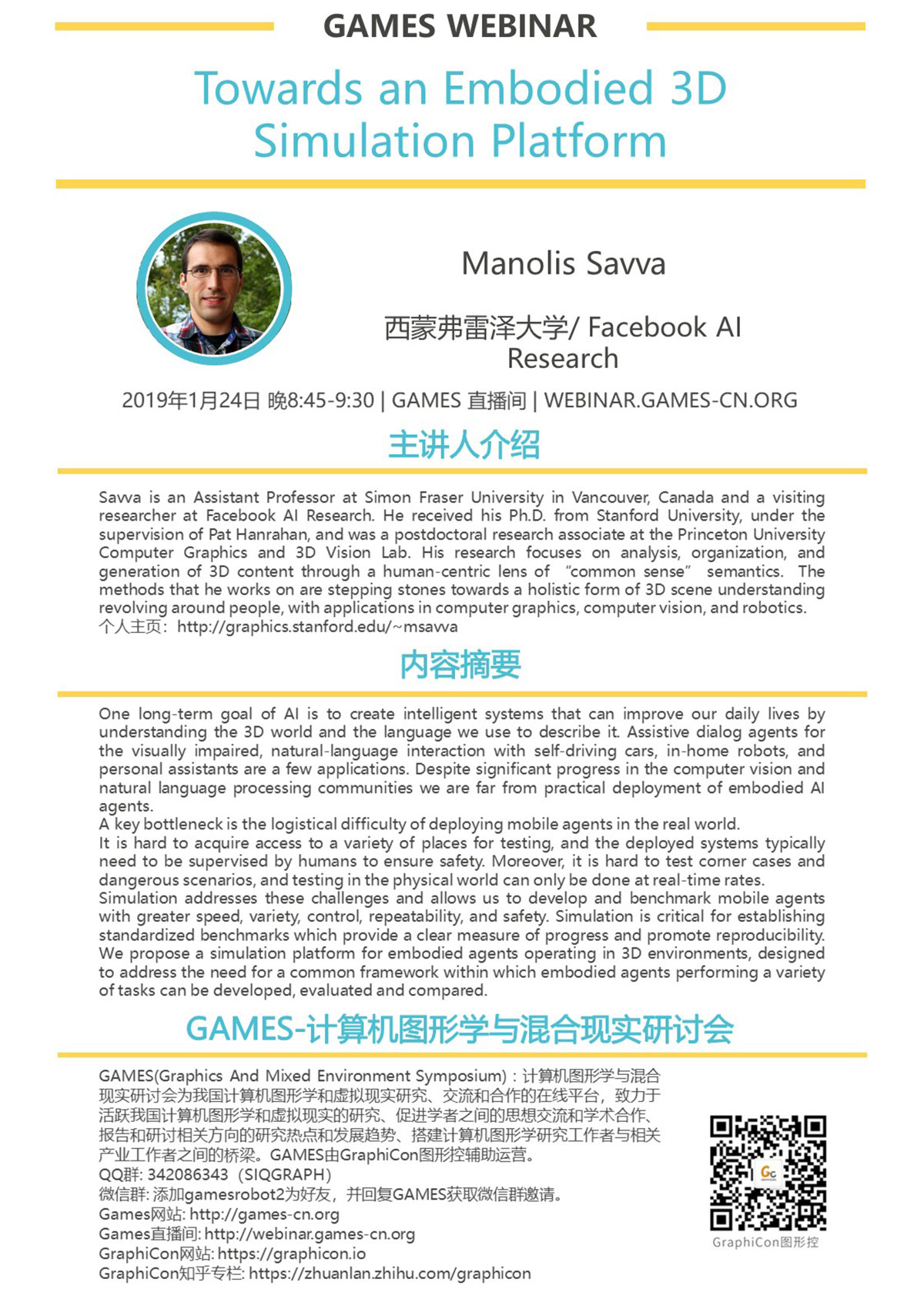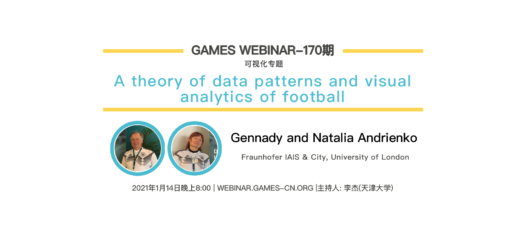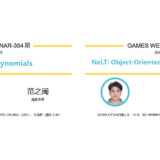GAMES Webinar 2019 – 83期(CVPR 2018三维视觉论文报告)| Matthias Nießner(慕尼黑工业大学),Manolis Savva(西蒙弗雷泽大学/ Facebook AI Research)


【GAMES Webinar 2019-83期(CVPR 2018三维视觉论文报告)】
报告嘉宾1:Matthias Nießner,慕尼黑工业大学
报告时间:2019年1月24日 晚8:00-8:45(北京时间)
主持人:徐凯,国防科技大学(个人主页:http://www.kevinkaixu.net)
报告题目:3D Reconstruction and Understanding of the Real World
报告摘要:
In this talk, I will cover our latest research on 3D reconstruction and semantic scene understanding. To this end, we use modern machine learning techniques, in particular deep learning algorithms, in combination with traditional computer vision approaches. Specifically, I will talk about real-time 3D reconstruction using RGB-D sensors, which enable us to capture high-fidelity geometric representations of the real world. In a new line of research, we use these representations as input to 3D Neural Networks that infer semantic class labels and object classes directly from the volumetric input. In order to train these data-driven learning methods, we introduce several annotated datasets, such as ScanNet and Matterport3D, that are directly annotated in 3D and allow tailored volumetric CNNs to achieve remarkable accuracy. In addition to these discriminative tasks, we put a strong emphasis on generative models. For instance, we aim to predict missing geometry in occluded regions, and obtain completed 3D reconstructions with the goal of eventual use in production applications. We believe that this research has significant potential for application in content creation scenarios (e.g., for Virtual and Augmented Reality) as well as in the field of Robotics where autonomous entities need to obtain an understanding of the surrounding environment.
讲者简介:
Matthias Nießner is heading the Visual Computing Lab at Technical University of Munich (TUM). He obtained his PhD from the University of Erlangen-Nuremberg in 2013, and was a Visiting Assistant Professor at Stanford University from 2013 to 2017. Since 2017 he is Professor at TUM, where he is focusing on static and dynamic 3D reconstruction approaches with a strong focus on modern machine learning and optimization techniques.
讲者个人主页:http://www.niessnerlab.org/
报告嘉宾2:Manolis Savva,西蒙弗雷泽大学/ Facebook AI Research
报告时间:2019年1月24日 晚8:45-9:30(北京时间)
主持人:徐凯,国防科技大学(个人主页:http://www.kevinkaixu.net)
报告题目:Towards an Embodied 3D Simulation Platform
报告摘要:
One long-term goal of AI is to create intelligent systems that can improve our daily lives by understanding the 3D world and the language we use to describe it. Assistive dialog agents for the visually impaired, natural-language interaction with self-driving cars, in-home robots, and personal assistants are a few applications. Despite significant progress in the computer vision and natural language processing communities we are far from practical deployment of embodied AI agents.
A key bottleneck is the logistical difficulty of deploying mobile agents in the real world.
It is hard to acquire access to a variety of places for testing, and the deployed systems typically need to be supervised by humans to ensure safety. Moreover, it is hard to test corner cases and dangerous scenarios, and testing in the physical world can only be done at real-time rates.
Simulation addresses these challenges and allows us to develop and benchmark mobile agents with greater speed, variety, control, repeatability, and safety. Simulation is critical for establishing standardized benchmarks which provide a clear measure of progress and promote reproducibility. We propose a simulation platform for embodied agents operating in 3D environments, designed to address the need for a common framework within which embodied agents performing a variety of tasks can be developed, evaluated and compared.
讲者简介:
Savva is an Assistant Professor at Simon Fraser University in Vancouver, Canada and a visiting researcher at Facebook AI Research. He received his Ph.D. from Stanford University, under the supervision of Pat Hanrahan, and was a postdoctoral research associate at the Princeton University Computer Graphics and 3D Vision Lab. His research focuses on analysis, organization, and generation of 3D content through a human-centric lens of “common sense” semantics. The methods that he works on are stepping stones towards a holistic form of 3D scene understanding revolving around people, with applications in computer graphics, computer vision, and robotics.
讲者个人主页:http://graphics.stanford.edu/~msavva
GAMES主页的“使用教程”中有 “如何观看GAMES Webinar直播?”及“如何加入GAMES微信群?”的信息;
GAMES主页的“资源分享”有往届的直播讲座的视频及PPT等。
观看直播的链接:http://webinar.games-cn.org











